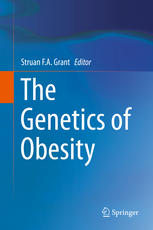

Most ebook files are in PDF format, so you can easily read them using various software such as Foxit Reader or directly on the Google Chrome browser.
Some ebook files are released by publishers in other formats such as .awz, .mobi, .epub, .fb2, etc. You may need to install specific software to read these formats on mobile/PC, such as Calibre.
Please read the tutorial at this link: https://ebookbell.com/faq
We offer FREE conversion to the popular formats you request; however, this may take some time. Therefore, right after payment, please email us, and we will try to provide the service as quickly as possible.
For some exceptional file formats or broken links (if any), please refrain from opening any disputes. Instead, email us first, and we will try to assist within a maximum of 6 hours.
EbookBell Team

4.3
8 reviewsIn the past four years, many genetic loci have been implicated for BMI from the outcomes of genome-wide association studies (GWAS), primarily in adults. Insulin-induced gene 2 (INSIG2) was the first locus to be reported by this method to have a role in obesity but replication attempts have yielded inconsistent outcomes. The identification of the second locus, the fat mass- and obesity-associated gene (FTO), h has been more robustly observed by others. Studies from both FTO knock out and FTO overexpression mouse model support the fact that FTO is directly involved in the regulation of energy intake and metabolism in mice, where the lack of FTO expression leads to leanness while enhanced expression of FTO leads to obesity. Along with numerous other studies, a number of genetic variants have been established robustly in the context of obesity, giving us fresh insights into the pathogenesis of the disease. This book will give a comprehensive overview of efforts aimed at uncovering genetic variants associated with obesity, which have been particularly successful in the past 5 years with the advent of genome-wide association studies (GWAS). This book will cover this state of the art technology and its application to obesity in great detail. Topics covered will include genetics of childhood obesity, genetics of syndromic obesity, copy number variants and extreme obesity, co-morbidities of obesity genetics, and functional follow-up of genetic variants.